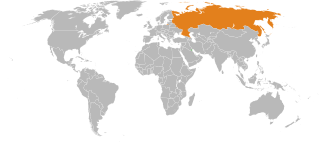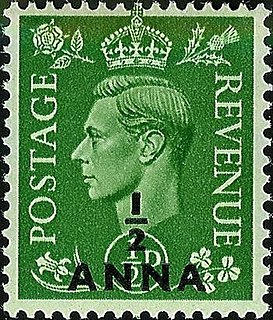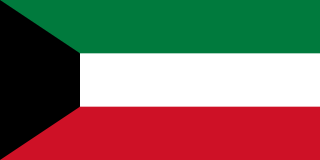
The Kuwaiti dinar is the currency of Kuwait. It is sub-divided into 1,000 fils. The Kuwaiti dinar is currently the world's highest-valued currency unit per face value.

The National Assembly, is the unicameral legislature of Kuwait. The National Assembly meets in Kuwait City. Members are chosen through direct election; the country is divided into five electoral districts with ten members representing each district. There are no official political parties in Kuwait, therefore candidates run as independents during elections; upon winning, members usually form informal parliamentary blocs. The National Assembly is made up of 50 elected members as well as up to 15 appointed government ministers who are ex officio members. On October 16, 2016, the Amir of Kuwait issued a decree dissolving the National Assembly citing security challenges, paving the way for early elections, which were held on November 26, 2016.

The Kuwait national football team is the national team of Kuwait and is controlled by the Kuwait Football Association. Kuwait made one World Cup finals appearance, in 1982, managing one point in the group stages. In the Asian Cup, Kuwait reached the final in 1976 and won the tournament in 1980.

Elections in Kuwait are held for both the National Assembly and for the Municipality. Kuwait's constitution calls for elections to the unicameral National Assembly at a maximum interval of four years. Elections are held earlier if the Constitutional Court or Emir dissolve the parliament.

General elections were held in Kuwait on 29 June 2006. They were the first elections in Kuwait in which women were able to vote and run for office.

The regions of Peru are the first-level administrative subdivisions of Peru. Since its 1821 independence, Peru had been divided into departments but faced the problem of an increasing centralization of political and economic power in its capital, Lima. After several unsuccessful decentralization attempts, the legal figure of region became official and regional governments were elected to manage the departments on November 20, 2002, until their planned fusion into real regions.

Kuwait–Russia relations is the bilateral relationship between the two countries, Kuwait and Russia.

Kuwait is a constitutional emirate with a semi-democratic political system. The hybrid political system is divided between an elected parliament and appointed government.
The first bill which would have given women the right to vote in Kuwait was put to the parliament in 1973. It was ultimately overturned due to pressure from conservatives. Bills continued to be denied through 1985 and 1986. Kuwait then became heavily involved in the Iraq-Iran war, and women began demanding recognition for their efforts in keeping their families and society functional. The parliament agreed and the first woman was finally appointed as the ambassador of the Persian Gulf in 1993. In 1996, 500 women stopped working for an hour to show solidarity in their right for suffrage, and demonstrations continued throughout the next 6 years. In May 1999 a decree that allowed women the right to vote and run for office was issued by the emir, however it was overruled again by the parliament 6 months later.

An early parliamentary election was held in Kuwait on 16 May 2009, the country's third in a three-year period. Kuwait had voted on six occasions between 1991 and 2009. The turnout rate was 50%. The election was notable in that four women were elected for the first time since Kuwait gained independence from the United Kingdom in 1961.
Middlesex County Council was the principal local government body in the administrative county of Middlesex, England from 1889 to 1965.
The Kuwaiti protests refers to the series of 2011–12 demonstrations for government reforms in the state of Kuwait. In November 2011, the government of Kuwait resigned in response to the protests, making Kuwait one of several countries affected by the Arab Spring to experience major governmental changes due to unrest. The protests began with stateless people (Bedoon).

General elections were held in the Bechuanaland Protectorate in 1961.

Early general elections were held in Kuwait on 27 July 2013. The elections were required after the Constitutional Court dissolved Parliament and annulled the results of the December 2012 elections. Voter turnout was an estimated 52.5%, which was higher than expected despite an opposition boycott, and only 7% lower than the non-boycotted February 2012 elections.

British postal agencies in Eastern Arabia issued early postage stamps used in each of Abu Dhabi, Bahrain, Dubai, Kuwait, Muscat and Qatar. Muscat and Dubai relied on Indian postal administration until 1 April 1948 when, following the Partition of India, British agencies were established there. Two agencies were opened in Qatar: at Doha and Umm Said. In Abu Dhabi, an agency was opened on Das Island in December 1960 and in Abu Dhabi City on 30 March 1963. The agencies also supplied stamps to Bahrain until 1960; and to Kuwait during shortages in 1951–53.
The following is a timeline of the history of Kuwait City, Al Asimah Governorate, Kuwait, and its metro surroundings.

Early general elections were held in Kuwait on 26 November 2016. They follow the dissolution of the parliament elected in 2013 by Emir Sabah Al-Ahmad Al-Jaber Al-Sabah in October 2016. Under the constitution, elections must be held within two months. Opposition candidates won 24 of the 50 seats in the National Assembly. Voter turnout was around 70 percent.

An election to the County Council of London took place on 13 April 1961. It proved to be the last election to the council, and plans for its replacement by the Greater London Council were already in process. The council was elected by First Past the Post with each elector having three votes in the three-member seats.












